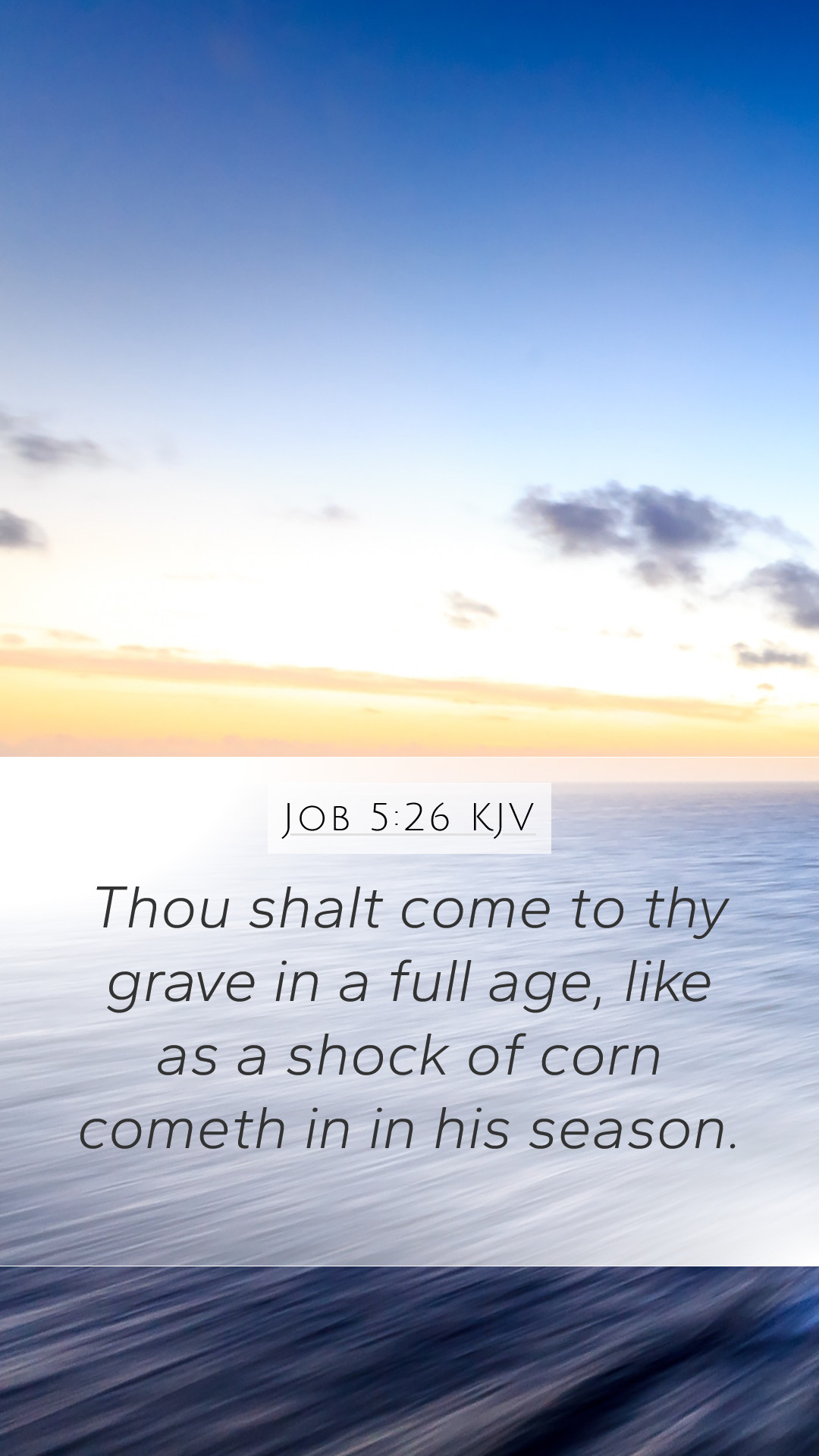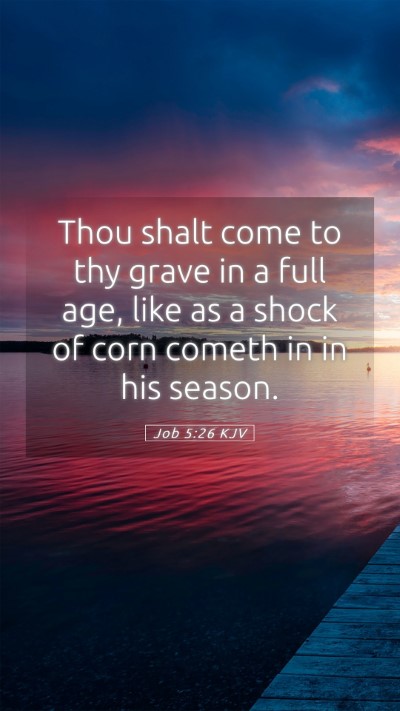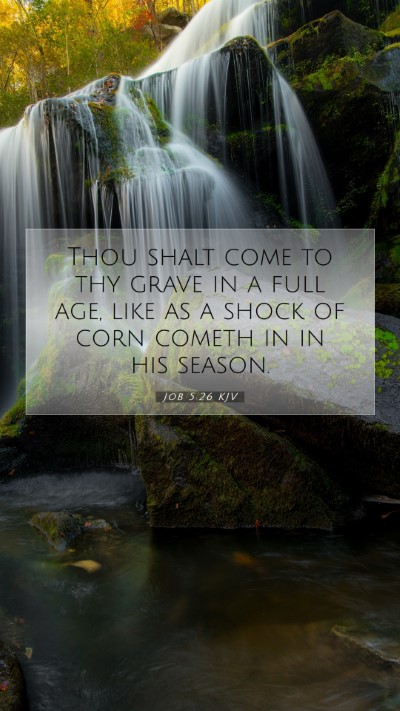Old Testament
Genesis Exodus Leviticus Numbers Deuteronomy Joshua Judges Ruth 1 Samuel 2 Samuel 1 Kings 2 Kings 1 Chronicles 2 Chronicles Ezra Nehemiah Esther Job Psalms Proverbs Ecclesiastes Song of Solomon Isaiah Jeremiah Lamentations Ezekiel Daniel Hosea Joel Amos Obadiah Jonah Micah Nahum Habakkuk Zephaniah Haggai Zechariah MalachiJob 5:26 Meaning
What is the meaning of Job 5:26?
Thou shalt come to thy grave in a full age, like as a shock of corn cometh in in his season.
Job 5:26 Bible Verse Meaning
Understanding Job 5:26 - A Comprehensive Bible Verse Commentary
Job 5:26: "Thou shalt come to thy grave in a full age, like as a shock of corn cometh in his season."
This verse from the Book of Job offers profound insights and has been the subject of various Bible verse interpretations throughout history. It suggests a culmination of life’s journey, hinting at the concept of dying in peace after living a life full of experiences and ages. Below, we explore the biblical exegesis of this verse combining insights from Matthew Henry, Albert Barnes, and Adam Clarke.
Verse Meaning and Interpretation
The primary message of Job 5:26 is one of assurance—that those who trust in God will experience a peaceful conclusion to their earthly life. Here are key elements to consider:
- Full Age: The phrase "full age" indicates a life lived to its fullest potential, representing completeness in life experiences.
- Like a Shock of Corn: The comparison to a shock of corn signifies that just as corn reaches its maturity and is harvested in season, so will a believer's life come to a fruitful end.
- Trust in Divine Providence: Job’s context reflects a theme of reliance on God’s sovereignty and timing in one’s life span.
Biblical Exegesis and Commentary
This verse, situated within the broader narrative of suffering in the Book of Job, serves as a reminder of God’s providential care. Commentators provide various insights:
Matthew Henry's Commentary
Henry emphasizes the contrast between the righteous and the wicked, highlighting that the righteous can expect a peaceful end. He draws a parallel between life’s growth and the natural cycles of harvesting, illustrating that God is intimately involved in the life cycles of His followers.
Albert Barnes' Commentary
Barnes points out that Job’s statement serves to comfort those who suffer. The inevitable and well-timed arrival at life’s end is likened to a "shock of corn," suggesting that life’s challenges lead to a glorious culmination, aligning with God’s promises.
Adam Clarke's Commentary
Clarke provides a linguistic analysis, referring to the agricultural metaphor used in the Hebrew text. He asserts that the term "shock of corn" conveys the idea of vitality and readiness, indicating that the end of life for the godly is a joyous fruition of their labor and faithfulness.
Application to Daily Life
For those studying the Bible, Job 5:26 offers significant lessons for application:
- Trusting God's Plan: Even amid suffering, believers are encouraged to trust in God's overarching plan for their lives.
- Living Intentionally: This verse urges Christians to live lives that reflect their faith, preparing for a fulfilling end.
- Comfort in Mourning: It holds a message of hope for those who mourn, reminding them of the natural order and the promise of a peaceful departure.
Cross References
To deepen your understanding, consider these related verses:
- Psalm 91:16 - "With long life will I satisfy him and show him my salvation."
- Proverbs 14:32 - "The wicked is driven away in his wickedness: but the righteous hath hope in his death."
- Ecclesiastes 3:2 - "A time to be born, and a time to die; a time to plant, and a time to pluck up that which is planted."
Conclusion
In conclusion, Job 5:26 encapsulates significant themes of life, death, and divine timing, resonating deeply with the faithful. Through understanding this verse, believers can find hope in the face of adversity, trust in God’s sovereign timing, and live their lives with purpose and intention.
For more detailed insights into the meaning of Bible verses and understanding Scripture, consider exploring the resources found in Bible study groups or online Bible study platforms. Engaging with Bible study tools and materials can enhance your study of this and many other significant scripture passages.


